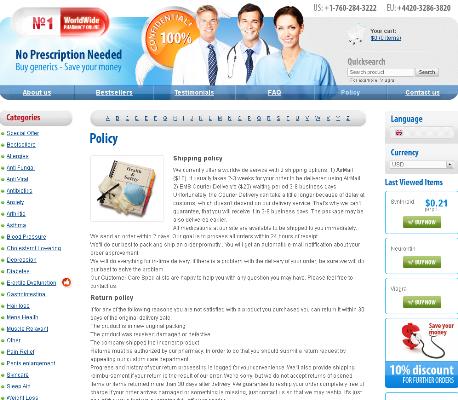How Isotretinoin Affects Your Nutritional Needs
When you begin isotretinoin treatment, your body’s nutritional requirements often shift due to the medication’s impact on how certain vitamins—like A, D, E, and K—are absorbed. Since isotretinoin is a powerful retinoid, it can increase your sensitivity to vitamin A, making it important to avoid excess intake from supplements or fortified foods. At the same time, your skin’s oil production decreases, potentially affecting hydration and causing dryness.
Balancing your diet becomes crucial, as proper nutrition supports your skin’s healing and reduces side effects. Consuming foods rich in healthy fats and antioxidants gives your body the tools it needs to manage inflammation and maintain overall skin health during your course of treatment.
| Nutrient | Role During Isotretinoin | Recommended Sources |
|---|---|---|
| Vitamin A | Avoid excess intake | Limit supplements, focus on food |
| Healthy Fats | Reduce dryness, support skin | Avocado, nuts, olive oil |
| Antioxidants | Promote healing | Berries, leafy greens, seeds |
Power Foods to Support Clearer Skin

While taking isotretinoin, nourishing your body with skin-loving foods can make a noticeable difference in your complexion. Vibrant fruits and vegetables, like blueberries, spinach, and sweet potatoes, are packed with antioxidants and vitamins such as A, C, and E—key nutrients for supporting your skin’s natural barrier and encouraging healthy cell renewal. Lean proteins, such as turkey, eggs, and lentils, provide essential amino acids your skin uses for repair and regeneration.
Don’t forget the power of whole grains and nuts. Foods like quinoa, brown rice, walnuts, and almonds deliver zinc and selenium, minerals known to help calm inflammation and reduce acne risk while you’re on an isotretinoin regimen.
Healthy Fats: the Good, the Bad, the Necessary
While taking isotretinoin, the kinds of fats you eat matter more than ever. Omega-3 fatty acids, found in salmon, flaxseeds, and walnuts, help soothe skin inflammation and support overall moisture—crucial during isotretinoin treatment, which often dries out the skin.
Be wary of trans fats and excess saturated fats from fried foods and processed snacks, as these can increase inflammation and may hinder your skin’s healing. Instead, favor healthy sources like avocado, olive oil, and nuts for balanced nourishment.
Foods Best Avoided on Isotretinoin

While on isotretinoin, your skin becomes more sensitive and your body’s lipid regulation shifts, making dietary choices especially important for overall well-being. Highly processed foods—those full of added sugars and unhealthy fats—can exacerbate inflammation, potentially making side effects like dryness, redness, or even breakouts more pronounced. In this phase, skipping greasy fast food, deep-fried items, and sugary snacks helps minimize the stress on your skin.
Vitamin A-rich foods such as liver or high-dose multivitamins should be limited, since combining them with isotretinoin could increase the risk of vitamin A toxicity and unwanted adverse effects. Instead, opt for whole, minimally processed foods to support your skin’s healing journey without overloading your body.
Lastly, spicy dishes and caffeine-laden beverages may further irritate the skin or digestive system for some users, amplifying discomfort during treatment. Listening to your body and staying mindful of these potential triggers will help keep your skin calm and recovery on track.
Smart Snack Choices for Isotretinoin Users
When cravings strike while on isotretinoin, the right snack can do more than satisfy hunger—it can actually help maintain your skin’s balance. Opt for nutrient-dense treats like unsalted nuts, plain yogurt with berries, or crunchy carrot sticks with hummus. These options provide essential vitamins and healthy fats without aggravating dryness or triggering inflammation often heightened by isotretinoin.
It's wise to avoid processed snacks loaded with salt, sugar, or unhealthy oils, as they can intensify side effects, such as dryness and irritation. Instead, focus on snacks combining protein, fiber, and hydration to stay fueled and support your skin’s healing. Here are some balanced ideas:
| Snack Option | Benefit for Isotretinoin Users |
|---|---|
| Greek yogurt with berries | Protein and antioxidants |
| Carrot sticks with hummus | Beta-carotene and healthy fats |
| Unsalted almonds | Vitamin E and skin-protective oils |
Staying Hydrated: Beverages That Benefit Your Skin
Imagine sipping a glass of cool water—simple, yet absolutely vital, especially when your skin craves moisture during an isotretinoin regimen. Hydration isn’t just about avoiding thirst; it helps counter the dryness that often accompanies this medication. Water remains the gold standard, but herbal teas like chamomile or green tea offer skin-loving antioxidants without added sugar.
Coconut water can be another refreshing option, naturally packed with electrolytes that assist with hydration. Steer clear of sugary sodas and caffeinated drinks, as these may worsen dryness or trigger inflammation. Infuse plain water with fresh fruits or cucumber slices for variety and extra nutrients.
A steady intake of beneficial fluids supports optimal skin health.

